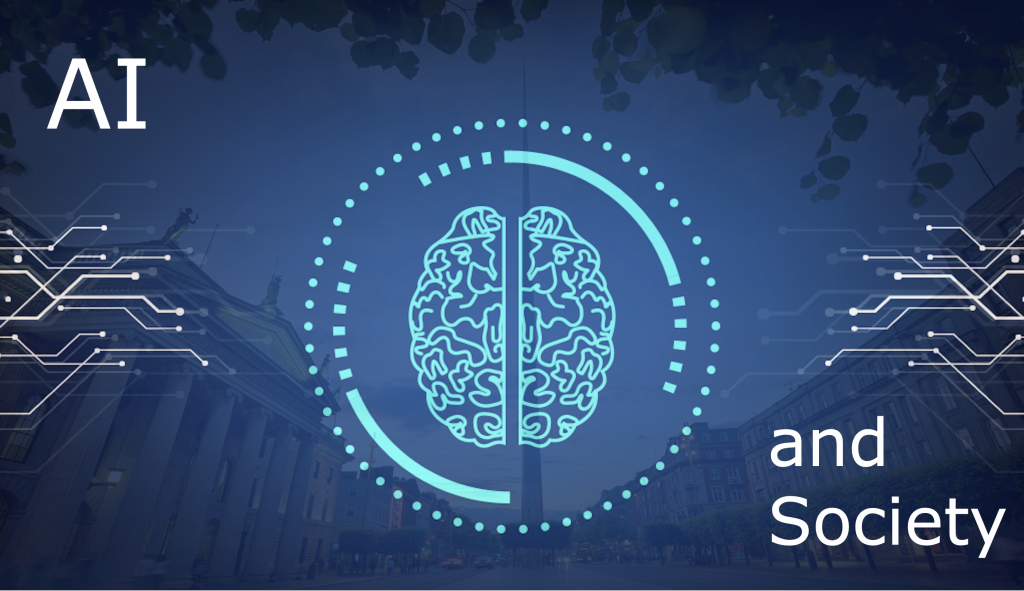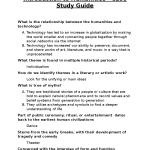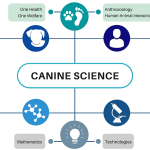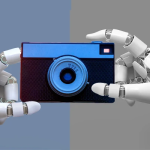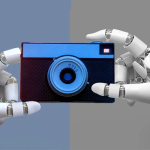AI and social justice are at the forefront of contemporary discourse, especially as we navigate the complexities technology introduces into society. Renowned sociologist Ruha Benjamin emphasizes that the future of AI can be shaped not just by corporate elites but by a collective vision rooted in social equity. By interrogating the ethical implications of AI in social justice initiatives, we can better understand how these technologies might perpetuate existing inequalities or create new oppressions. Benjamin’s insights challenge us to reflect on human values in the context of advancing technology and its application in our everyday lives. As AI continues to evolve, the intersection of technology ethics and social responsibility becomes crucial for ensuring that progress benefits all members of society, rather than just a privileged few.
The intersection of artificial intelligence and fairness is gaining momentum, prompting essential conversations about equity in technological advancements. Scholars and advocates are increasingly questioning how machine learning systems can perpetuate systemic disadvantages and what ethical frameworks should guide their development. Prominent figures such as Ruha Benjamin propose that fostering inclusive dialogue around these innovations is vital for creating a just future. Engaging with these concepts encourages a reassessment of societal priorities, ensuring that humanity’s diverse needs are genuinely reflected in the algorithms that govern our lives. As we explore the implications of these advanced technologies, it is imperative to intertwine discussions of human dignity and collective responsibility within the broader narrative.
The Vision of Ruha Benjamin on AI and Social Justice
Ruha Benjamin’s insights into the relationship between artificial intelligence and social justice underscore a pressing need to rethink our technological future. In her recent Tanner Lectures, she emphasizes how the narratives surrounding AI are often dominated by tech elites who prioritize profit and self-interest over genuine societal benefits. Benjamin argues that we must scrutinize these technologies critically, recognizing that innovations like facial recognition and automated decision-making have disproportionately harmed marginalized communities. By framing AI as a moral actor, while ignoring its potential to perpetuate systemic injustices, we risk repeating the mistakes of history, notably the harms associated with the eugenics movement of the 20th century.
Benjamin challenges us to reconsider the priorities of those crafting AI technologies. Instead of simply accepting the narrative that tech advancements equate to societal progress, we should demand more accountability and transparency from those in control. By bringing diverse voices into the tech conversation—particularly those from communities that are often overlooked—we can cultivate a more equitable approach to technology development. This approach not only emphasizes the importance of technology ethics but also aligns with social justice initiatives that seek to elevate human values above profit motives.
Reimagining the Role of Technology in Society
The future envisioned by Ruha Benjamin goes beyond mere critiques of existing technologies; it invites a radical reimagining of how technology can serve humanity. She urges us to consider how creativity and the arts can inform technological advancements, encouraging universities and institutions to explore interdisciplinary approaches that combine technical know-how with critical thought. By fostering a dialogue that includes voices from the arts and humanities, we can look beyond the oppressive frameworks of current AI applications and envision systems that uplift rather than diminish human life.
As she suggests, it is not enough to make existing systems less harmful; we must challenge the very principles that inform those systems. This means actively resisting the narrative that frames public goods, like healthcare and housing, as unrealistic or impractical compared to speculative technologies aimed at escape or survival during an AI apocalypse. Instead, we should ignite our imaginations to envision a future that encompasses universal access to essential services, viewing them as imperative to human dignity and justice.
The Necessity for Ethical AI Development
In her discussions, Ruha Benjamin highlights the urgent need for ethical considerations in AI development. She points out that algorithms, often viewed as neutral tools, can perpetuate biases already entrenched in society. The decision-making processes that AI systems undertake must be scrutinized through the lens of social justice to ensure they do not exacerbate existing inequalities. This places the responsibility on developers and organizations to actively involve ethicists, sociologists, and community voices in the design of AI technologies.
Moreover, Benjamin’s call for ethical AI challenges the prevailing narrative that prioritizes technological efficiency over human welfare. It raises important questions about the values that guide AI development and the implications for all members of society, particularly those from marginalized communities. The dialogue around technology ethics must evolve to reject the simplistic notion that technology serves the public good by default; instead, it must advocate for a more principled approach that genuinely seeks to reflect human values and social equity.
Challenging the Powerful with Inclusive Knowledge
One of the critical points that Ruha Benjamin addresses is the concentration of knowledge and power within the tech industry. By advocating for a more inclusive approach in decision-making, she highlights the importance of incorporating diverse perspectives—especially from historically marginalized groups—into technological discourse. This engenders a richer understanding of the societal impacts of AI and paves the way for solutions that are genuinely beneficial to all.
Benjamin’s assertion that computational depth must be paired with social and historical context serves as a powerful reminder that knowledge should not be confined to technical skills alone. The integration of varied knowledges—including cultural, ethical, and historical insights—can lead to technologies that reflect a broader understanding of human needs and values. It is this blend of expertise that has the potential to drive forward equitable innovations in AI and to challenge the status quo in tech development.
Encouraging Critical and Creative Inquiry
As Ruha Benjamin highlights, the role of critical inquiry in the future of AI cannot be understated. She pushes against the limitations of traditional thinking and urges individuals and institutions to cultivate a creative culture that encourages questioning and imagining alternatives to existing systems. This kind of inquiry is essential not only for developing ethical AI but also for envisioning an equitable society where technology serves the common good.
The call for creativity is a call to action, urging scholars, students, and community members to engage in deep, reflective practices that explore the implications of technology on social justice. By fostering environments where critical and creative thinking coexists, we can shift the narrative surrounding technology from one of fear and oppression to one of empowerment and hope. This exploration paves the way for developments that honor human dignity and promote collective well-being.
The Intersection of Technology and Human Values
Benjamin’s work invites us to critically examine the intersection of technology and human values, particularly regarding AI’s role in society. By advocating for a technology that is informed by shared human experiences and ethical considerations, she challenges us to rethink how we integrate technology into the fabric of our daily lives. Rather than viewing AI as a detached, mathematical anomaly, we should approach it as a tool that should enhance and reflect our communal values.
The motivations driving AI development should echo the values of equity, compassion, and understanding, ensuring that advancements do not come at the cost of human lives. This vision of technology, one that prioritizes human flourishing, can lead to innovations that genuinely improve societal outcomes. As we forge ahead, it is crucial to remain vigilant about the implications of emerging technologies and to steer them toward fostering societal well-being and justice.
Breaking Down Barriers to Imagination
Ruha Benjamin’s invitation to break down mental barriers is a profound call for transformation in how we conceptualize the future. Often, societal structures impose limitations on our imagination, convincing us to dismiss radical ideas as unrealistic. By challenging these perceptions, Benjamin encourages us to envision a world that transcends the confines of current societal norms—one that is free from surveillance, oppression, and inequality.
This process of dismantling mental barriers is not just an intellectual exercise; it requires individuals to grapple with deeply ingrained beliefs and assumptions about technology and justice. By opening up to the possibility of alternative futures, we equip ourselves to engage with technology in a manner that aligns with the best of our aspirations for society. The act of imagining such futures can serve as a catalyst for meaningful change and a blueprint for initiatives that prioritize liberation and creativity.
Building a Collaborative Future in Technology
Ultimately, Benjamin’s vision for the future of AI and technology stresses the importance of collaboration across disciplines. She posits that in order to develop technologies that reflect and serve diverse communities, we must foster environments where technologists, social scientists, artists, and ethicists can work together. This collaboration will ensure that multiple perspectives are integrated into the design process, leading to innovations that are deeply rooted in societal needs.
Such interdisciplinary approaches can help bridge the gap between technical capabilities and social realities. They facilitate discussions that can identify potential harms before they manifest and proactively seek solutions that uphold social justice. By prioritizing collaborative efforts, we not only enhance the quality of our technological developments but also pave the way for an inclusive future where technology serves to unite rather than divide.
Frequently Asked Questions
How does Ruha Benjamin connect AI and social justice in her lectures?
Ruha Benjamin emphasizes the importance of integrating social justice into discussions about AI, arguing that current AI technologies often perpetuate oppression rather than alleviate it. She critiques how tech elites promote AI solutions as altruistic while ignoring their societal impacts, particularly on marginalized groups.
What are the implications of AI technologies on social justice initiatives according to Ruha Benjamin?
Benjamin points out that AI technologies, when unchecked, can lead to increased systemic injustice, such as biased facial recognition systems. She advocates for a more thoughtful approach that considers historical and social contexts to ensure that AI supports social justice initiatives rather than undermining them.
In what ways does Ruha Benjamin argue that technology ethics should be applied to AI development?
Benjamin argues that technology ethics must prioritize human values and social equity when developing AI. She believes that ethical considerations should extend beyond technical efficiency to include the societal harms that can arise from AI deployment, particularly for marginalized communities.
What vision of the future does Ruha Benjamin propose about AI and social justice?
Ruha Benjamin invites us to imagine a radically different future where AI serves humanity broadly, challenging the status quo of technology being dictated by elite interests. She calls for creative and critical inquiry into how AI can support social goods rather than merely serve corporate profits.
How can we ensure that AI technologies align with human values and social justice, as suggested by Ruha Benjamin?
According to Benjamin, ensuring AI technologies align with human values requires diverse voices in the development process, particularly from those familiar with social issues. This means integrating perspectives from the arts and humanities alongside technical expertise to create systems that benefit everyone.
What role do arts and humanities play in reimagining AI’s impact on social justice, according to Ruha Benjamin?
Benjamin argues that arts and humanities are crucial for reimagining AI’s societal impact. By fostering creativity and critical thinking, these fields can help envision AI systems that not only avoid harm but actively promote social good, encouraging a transformative rather than a merely reformative approach.
How does Ruha Benjamin challenge the current narratives around AI in relation to social oppression?
Benjamin challenges the narratives around AI by highlighting that while AI is often marketed as progressive, it frequently exacerbates existing social injustices. She calls for skepticism regarding the portrayal of tech innovations as inherently beneficial, urging a deeper examination of their societal implications.
What calls to action does Ruha Benjamin make for individuals concerned about AI and social justice?
Benjamin encourages individuals to engage in critical thinking and creativity about AI’s role in society. She urges a collective questioning of the status quo and a proactive stance toward envisioning alternatives that dismantle societal barriers, moving beyond merely mitigating harm.
How does Ruha Benjamin view the relationship between AI, public goods, and social infrastructure?
Ruha Benjamin critiques the tendency to view technological innovations as more valuable than essential public goods. She asserts that sustainable social infrastructure, such as affordable housing and public transportation, should be prioritized alongside advancements in AI to create a just society.
What is the significance of Ruha Benjamin’s perspective on AI and social justice for future technological development?
Benjamin’s perspective on AI and social justice underscores the necessity of inclusive and ethical technological development. By emphasizing the social impacts of AI and advocating for a broader discourse that includes diverse viewpoints, she calls for a future where technology genuinely enhances social equity.
| Key Point | Details |
|---|---|
| Radical Future Imagining | Ruha Benjamin encourages citizens to envision an optimistic future rather than a dystopian one. |
| Critique of AI Proponents | Tech elites often claim to push for altruistic AI advancements; however, their motives may primarily serve self-interest. |
| Dangers of AI Technologies | AI technologies can perpetuate oppression and harm marginalized communities, such as through biased facial recognition systems. |
| Need for Social Understanding | Tech developers must include diverse societal knowledge to create more equitable solutions. |
| Imagining Beyond Current Norms | Benjamin urges rethinking societal structures and values, advocating creativity and imagination in problem-solving. |
Summary
AI and Social Justice is a crucial topic that requires a serious reevaluation of current technologies and their implications on society. Ruha Benjamin argues for a vision where creativity and ethical considerations drive the development of AI, rather than unchallenged technological advancement fueled by profit. She highlights the necessity of involving a variety of perspectives in shaping future technologies to ensure they serve the broader good, rather than perpetuating existing inequalities.
